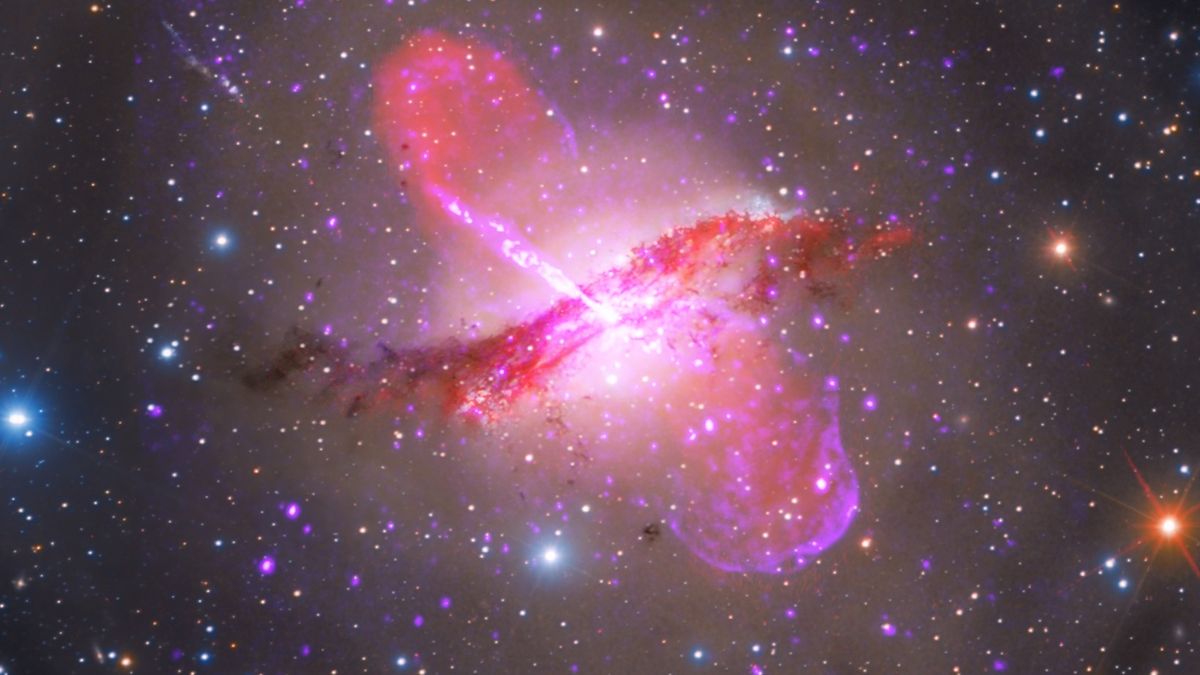New type of black hole found lurking in Earth's 'cosmic backyard' is closest ever discovered
By Joanna Thompson published 9 days ago
The two closest black holes to Earth, named Gaia BH1 and BH2, may be part of a rare class of black holes never seen before, new research suggests.

A multi-wavelength image of the stunning galazy Centaurus A, with twin lobes of purple light bursting out of its bright center
Gaia BH2, one of the closest black holes to Earth ever detected, sits 3,800 light-years away in the constellation Centaurus. Here, the galaxy Centaurus A shines brightly. (Image credit: NASA/CXC/SAO; optical: Rolf Olsen; infrared: NASA/JPL-Caltech; radio: NRAO/AUI/NSF/Univ.Hertfordshire/M.Hardcastle)
Two recently discovered black holes are remarkably close to Earth — and they may represent a previously unknown category of the mysterious, massive objects. An international team of astronomers discovered the black holes using data from the European Space Agency's (ESA) Gaia mission combined with a bevy of ground-based telescopes from around the world.
Dubbed Gaia BH1 and Gaia BH2, the two black holes are the closest to Earth of any discovered so far, according to ESA. Gaia BH1 lies a mere 1,560 light-years from our solar system towards the Ophiuchus constellation, nearly three times closer than the previous record holder. Gaia BH2 sits about 3,800 light years away, toward the constellation Centaurus. Both are roughly nine to 10 times more massive than our sun, and sit within our own Milky Way galaxy.
Why has it taken so long for astronomers to notice such massive black holes? Because they're practically invisible. In the past, scientists searched for black holes by looking for the remnants of their latest meal; when a star or cloud of interstellar gas falls in to a black hole, it leaves behind a burst of electromagnetic radiation, which astronomers can detect to infer a black hole's presence, according to NASA.
But unlike previous discoveries, Gaia BH1 and 2 are completely dark; they don't appear to be snacking on anything at the moment, making them "dormant," or inactive. Instead, the researchers found the black holes by carefully tracking the movements of two sun-like companion stars orbiting around the cosmic giants.
More:
https://www.livescience.com/new-type-of-black-hole-found-lurking-in-earths-cosmic-backyard-is-closest-ever-discovered
